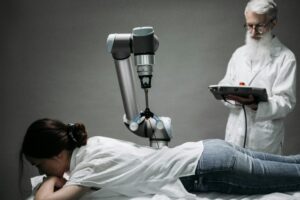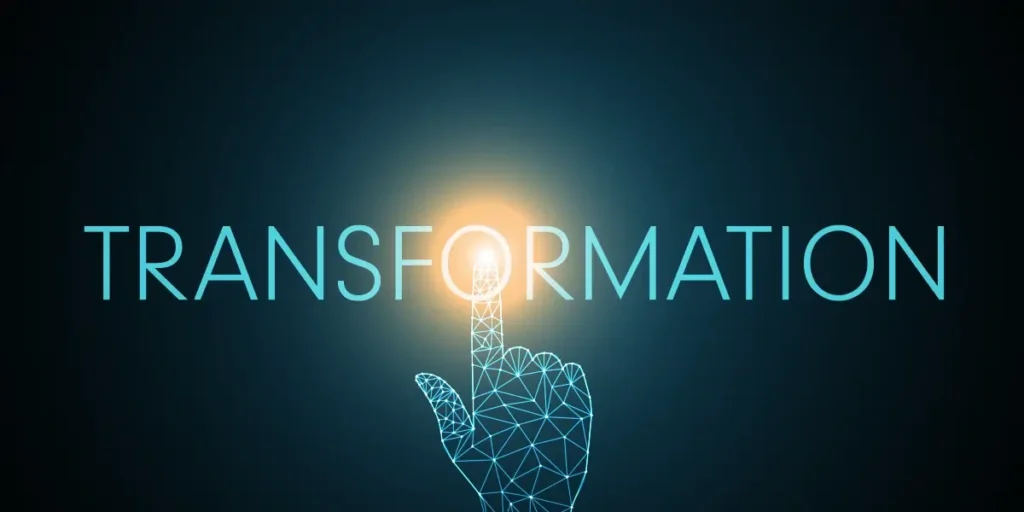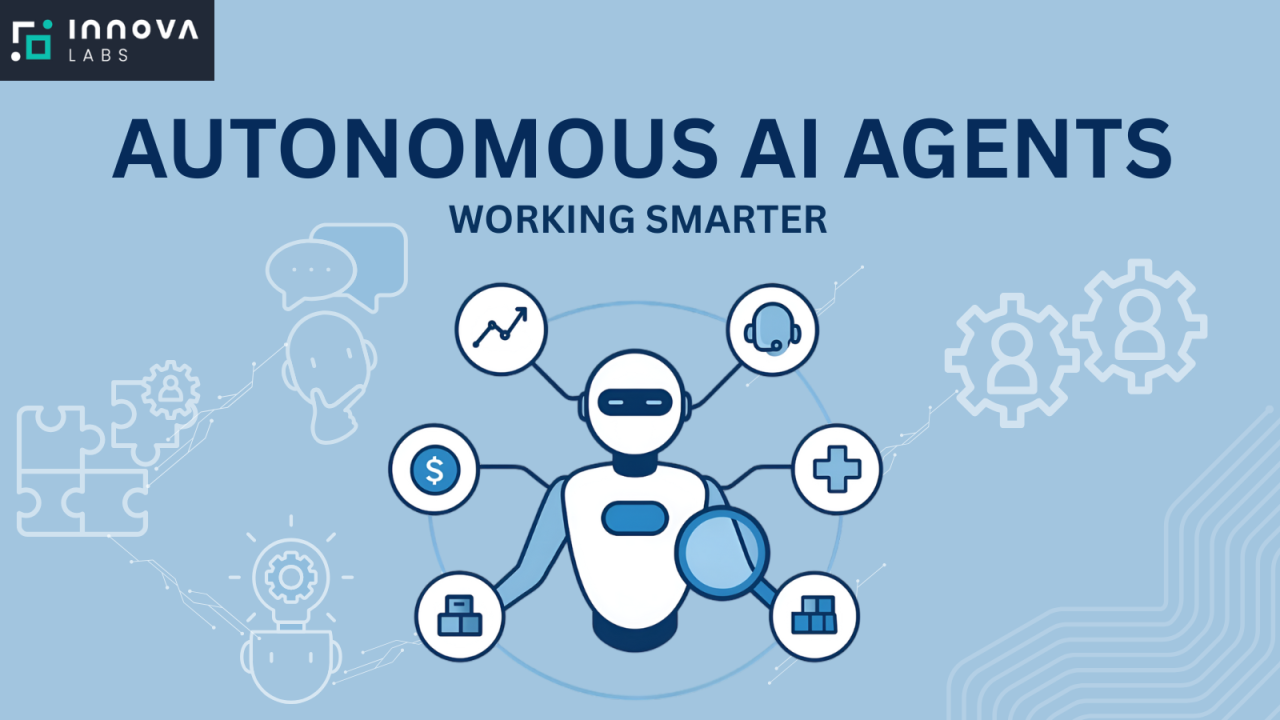Introduction: The Rise of AI in Modern Medicine
Artificial Intelligence (AI) is no longer a buzzword in technology anymore because today it can be found as a lifesaver in hospitals, clinics, and research laboratories worldwide. The international healthcare sector, which was previously burdened with efficiencies, the ever-growing data, and exponentially expanding expenses, is finally getting a lifesaver in AI. Whether it is enabling doctors to diagnose diseases quicker than ever before, predict patient outcomes, or even personalize the approaches toward their disease, AI has transformed the sphere of care provision.
In 2025, Artificial Intelligence will be integrated into almost every single part of healthcare: Diagnostics, drug discovery, clinical decision-making, mental health, and even robotic surgeries. Therefore, though the effects of AI in health are enormous, there is also a new set of ethical, legal, and operational questions that must not be overlooked.
This article gives an in-depth tour to the world of AI in healthcare – what is going smoothly, what is new and what we should be aware of.
1. Diagnostic Precision: AI as a Digital Doctor
Medical diagnosis is one area, especially imaging and pathology that has really used AI to the deepest level. Deep learning algorithms are now able to diagnose diseases and reach a level of accuracy that usually either equals or even surpasses human powered clinicians.
Use Cases in Diagnostics:
- Radiology: Aidoc and Zebra Medical Vision are two AI applications that promise to read X-rays, CT scans, and MRIs and notice fractures, tumors, strokes, and internal hemorrhages within seconds.
- Pathology: PathAI applies machine learning in the identification of cancerous tissues with high accuracy.
- Dermatology: Mobile applications teach the general population to identify melanoma skin cancer or other dangerous skin ailments using algorithms, trained on thousands of diseases of the skin.
The result? Quicker diagnoses, less error and more certain clinical choices.
2. Predictive Analytics: Preventing Before It Happens
AI is not only reactive, but it is also predictive. Through the analysis of huge amounts of data available in electronic health records (EHRs), wearable devices and even genomics, AI will be able to predict disease risks and patient deterioration.
Examples:
Answering questions such as will the patient in the intensive care unit deteriorate in the next few hours (e.g., following the risk of sepsis).
Keeping track of patients in order to re-admit them to alleviate the burden in hospitals.
The groups of high-risk population with chronic illnesses such as diabetes, or heart failure.
Such healthcare facilities as Mount Sinai and Mayo Clinic have already been utilizing predictive AI to streamline patient outcomes and minimize emergency cases.
3. AI in Drug Discovery: A Revolution in the Lab
The conventional process requires 1015 years to develop a new drug and the expenditure is usually in billions of dollars. AI is breaking this loop by speeding up all elements such as discovering druggable targets, modeling the interaction with molecules, etc.
Notable Examples:
- In less than 18 months with the help of AI, Insilico Medicine developed a new drug candidate to treat fibrosis.
- AlphaFold developed by DeepMind has solved the problem of protein-folding and enabled scientists to comprehend biological processes as never before.
4. Virtual Health Assistants: Healthcare Goes 24/7
In the era of the digital-first healthcare environment, AI chatbots and health assistants are filling the gap between the patient and the physician.
The AI Health Bots:
Babylon Health: It provides AI-assisted triage and consultation.
Ada Health: A medical knowledge-graph-powered symptom checker.
GPT-based agents: Provide psychological help, sort out the situation, and lifestyle coaching.
These tools:
- Cut wastage of medical visits.
- Assistance in the facilities with poor access to healthcare.
- Obtain pre-consultation material and also save the doctors time.
5. Personalized Medicine: One Size No Longer Fits All
AI is realizing the dream of individual, precision medicine. AI can personalize treatment in regard to individual patients by examining genetic information, lifestyle factors, and exposure.
Examples:
- AI proposes an optimal chemotherapy regimen, depending on the genetic configuration of a patient and the type of cancer.
- In mental health, AI is used to generate forecasts as regards to which antidepressants will be effective with references to previous experiences and patient characteristics.
There are hospitals such as Stanford, and Cleveland Clinic using AI in genomics-based treatment planning, including in oncology
6. Robotic Surgery and AI-Assisted Procedures
Robot surgery has long been considered a possible reality with the current existence of surgical robots, such as the da Vinci Surgical System, but the functionality of robotic surgery is about to change with the incorporation of AI.
AI-powered robots assist in:
-
Designing intricate surgeries using three dimensional designs.
-
Elimination of the tremors of the human hands during sensitive tasks.
-
Taking operation decisions based on visual information in real-time.
The benefits? Less complications, smaller scar wounds, quick healing, and accurate results.
7. AI in Mental Health: The Rise of Therapy Bots
There is increased awareness of mental health, and AI would make it more available, scalable, and stigma-free to support.
Applications of AI Therapy:
Woebot: A chatbot that provides cognitive behavioral therapy (CBT) skills.
Wysa: The 24-hour AI mental fitness application that provides emotional support.
Therapist-bots: These are chatGTPT trained bots that provide guided therapeutic discussion.
AI can also act as a detector of depression or anxiety by monitoring the speech, facial expressions, or activity in social media once it picks up a sign of depression or anxiety, it can inform caregivers.
8. Administrative Automation: Reducing Burnout
9. Real-Time Monitoring via AI Wearables
AI can enable smart wearables such as the Apple Watch, Fitbit, or medical-grade patches to diagnose real-time irregularities in heart rate, levels of oxygen, or sleep regimens.
Examples:
- Sleep apnea or atrial fibrillation detection early.
- Fall detection of elderly patients.
- Diabetes patients monitoring with AI-based warning.
These devices give patients tools and provide warning to the providers before they can emerge into a crisis.
10. Digital Twins: The Next Big Leap
Digital twin is a virtual model of a human being – constructed with real-time health data.
This model can be applied by AI to:
- Predict the reaction of a patient to some treatments.
- Individualize medicines dosage.
- Simulate the desired results of the test surgery on computer.
In the near future, digital twins may represent an important instrument in personalized medicine and clinical trial.
Benefits of AI in Healthcare
-
Reduced diagnosis/treatment time: Reduces the time of diagnosis to some seconds.
-
Cost effectiveness: Avoids excessive tests and rehospitalization.
-
Minimized human error: AI will never tire out and lose focus.
-
Scalable care: Particularly helpful in distant, under-positioned areas.
-
Availability of 24/7: Virtual assistants are available at all times.
Challenges and Risks
1. Data Security and privacy
Medical information is very sensitive. In order to comply with the data protection laws such as the GDPR, HIPAA, and the Digital Personal Data Protection (DPDP) Act of India, the AI systems have to comply with one of its provisions.
2. AI Model Bias
When AI is trained with datasets that are not diverse, it might misdiagnose patients who represent the underrepresented group.
3. Explainability The inability to explain the reason behind the presence of the most dangerous kinds of flies and their severity. A large number of AI models are black boxes. Doctors should learn the process through which the AI made its decision in order to use and trust it.
4. Regulatory Hurdles
Such AI tools have to undergo the validation and approval by organizations such as FDA or EMAwhich is time-consuming and cost-ineffective.
5. Ethical Dilemmas
Does an AI get a chance to advise on end-of-life care? Who bears the responsibility of the mistakes made by AI?
Future of Artificial Intelligence in Healthcare (2025 and Beyond)
- It is not AI-based care but rather AI-enhanced human practitioners.
- Audio-based AI that records communication between medical workers.
- Borderless AI cooperation in predicting the pandemic and worldwide health monitoring.
- The use of AI in rural medical delivery by means of mobile diagnostic and diagnostic van and telemedicine.
Blockchain and AI to encrypt patient data and obtain a decentralized control over information






